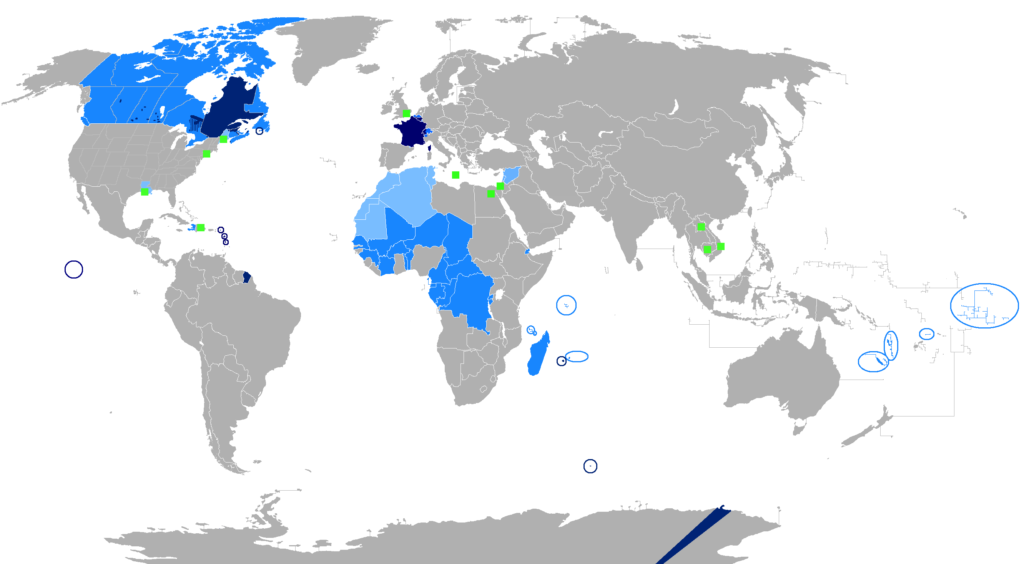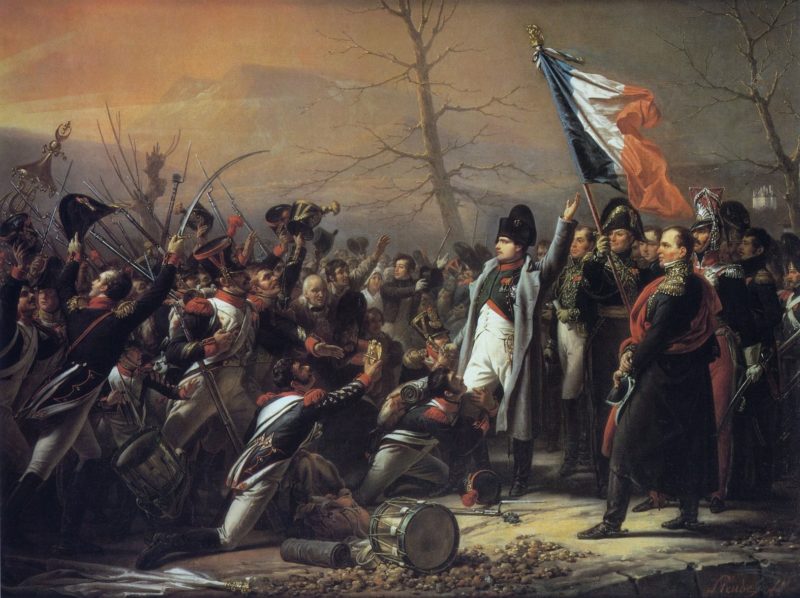The history of the French language is long and fascinating. The events that shaped the language are relevant even today. Since French is such a major language worldwide, it’s worth looking at its origins, history, and roots.
French is one of the Romance languages. It’s an official first or second language of 29 countries across several continents. It’s the 16th most spoken language in the world, with 77.2 million people in 54 countries speaking it as their first language. Worldwide, there are approximately 279.8 million French speakers.
People speak French in many parts of Europe, North America, Asia, and even in several countries in Africa, from Benin to Tunisia. And you can become fluent in French too.
French Language Origins
The location of modern-day France used to be part of a larger region occupied by Gauls, who spoke a type of Celtic language. Other ethnic tribes and linguistic groups also occupied the region. Romans conquered the Gauls in 121 BC and the region was eventually annexed to the Roman Empire in 52 BC. Since the Romans spoke Vulgar Latin, they required the Gauls to speak Latin, resulting in a Latin mixed with Celtic words.
In the 3rd century, Western Europe suffered an invasion by various tribes from Germany, with several groups settling in northern France. The Franks imposed the use of their own Frankish language. This had a major impact on the already dilutes Latin that they spoke in the region.
If you ever wondered why French sounds so different from other Romance languages, the answer is the Frank invasion. The arrival of the Franks had a major influence on the evolution of the French language we know today. While they allowed the use of Latin, they enforced the use of their own patterns of usage and stress patterns on the local language. While French remained a Romance language thanks to its Latin origins, the sound patterns were forever changed from others in its language family.

Is French Latin Based?
The evolution of the French language is fast and drastic. In capsule form, here are the stages of the history of the French language:
- 5th-8th centuries.Gallo-Romance, which is a combination of Vulgar Latin and Gaulish
- 9th-13th centuries. Old French, springing from the Northern Gaul dialects. It became a distinct language with its own grammar. The Strasbourg Oaths are a great example of Old French (Francien).
- 14th-15th centuries. This is the period of Middle French, where the changes in grammar and pronunciation occurred. Middle French evolved from the French dialect spoken in the Île de France area.
- 16th century. This is a period of development of Early Modern French. Users were trying to raise the language to the same level as Latin for literary pursuits. This is also the period where French became the official language of the government.
- 17th-18th centuries. In this period, called the era of Classical Modern French, they fixed the key grammar conventions leading to modern French. It’s the time when French was an international language due to the country’s expansion of its colonies.
- From the 19th century. The period of Contemporary Modern French was the time for fixing the pronunciation we know today. They declared standardized French as the official language of France, as well as the colonized regions in Africa and Belgium.
Francien Dialect
The Francien (Old French) dialect is the literary language in French. This stemmed from its dominance over Picard and Norman in the 12th to 13th centuries. Particularly since it was spoken in the central region of Île-de-France, where Paris is. The region was highly influential because it was the literary and political center during those times.
When written Francien became very popular, the 1539 Edict of Villers-Cotterêts (a legal reform) firmly grounded it as the sole official language. However, what’s popular in Paris, may not be that popular in the rest of the country. The widespread use of Francien was slow to take hold. Other regions of France only adapted by the 19th century. By that time, its vocabulary and grammar became polished and standardized.

Early Documents in French
According to historical records, the first document written in the language was called the Strasbourg Oaths. Created around 842, the document was the sworn oaths of two grandsons of Charlemagne.
A few more documents written in Old French showed the language with features from other dialects, such as the document regarding St. Eulalia’s life by Prudentius, Vie de St. Léger and the Passion du Christ from the 10th century. Considered a gem of the 12th century were the epic poems called ”La Chanson de Roland.” While the poems were beautiful, the origin of the dialect used by the author was difficult to identify.
Modern French: The Official Language of France
Modern-day French came from a mixture of Celtic, Latin and Germanic roots. Each language made several contributions to the French vocabulary. Several other languages contributed to the enrichment of the French lexicon.
In 1634, Cardinal Richelieu founded the Académie Française with the aim to preserve the French language. French was a language of diplomacy from the 17th century up to the middle of the 20th century. However, it lost its status to English after WWII, when the United States a superpower. The French Academy is still existent and helps in policing the French language, approving the adaptation of foreign expressions and loan words.
The French language had its heyday from the 17th to the 19th centuries. It was the main language of the educated elites in Europe, especially those engaged in diplomacy, literature and the arts. Even the courts of Scandinavia, Germany, and Russia use French, disregarding their native languages.
Although French lost its status as the language of diplomacy, it remains a major language. It’s the working language of the United Nations. In the European Union’s Court of Justice, French is the only language used in deliberations. Likewise, the EU uses French as a procedural language. And while there are still several French dialects and variations, Parisian French remains the model of the language, since Paris, like in medieval times, remains the political and literary center of France. Thus, it is essential to request the specific dialect or variation of the language when you require French translation.
Learn French Today
The history of the French language is long and fascinating. Thanks to its influence, it’s still one of the most widely spoken languages in the world. So, it’s worth studying it, and reaching fluency. As intimidating as that may seem, it’s an easy and fun process with OptiLingo.
OptiLingo’s language learning app teaches you high-frequency phrases, so you’ll learn exactly how the locals speak. But it’s not enough to just listen to French. If you want to become fluent, you need to speak the language. Luckily, with OptiLingo, you can comfortably practice your pronunciation. With only 20 minutes every day, you can reach fluency in record time. Try OptiLingo today, and discover how effective it really is!







